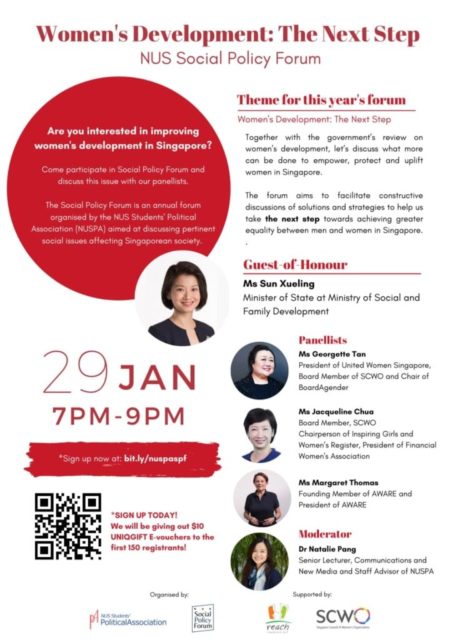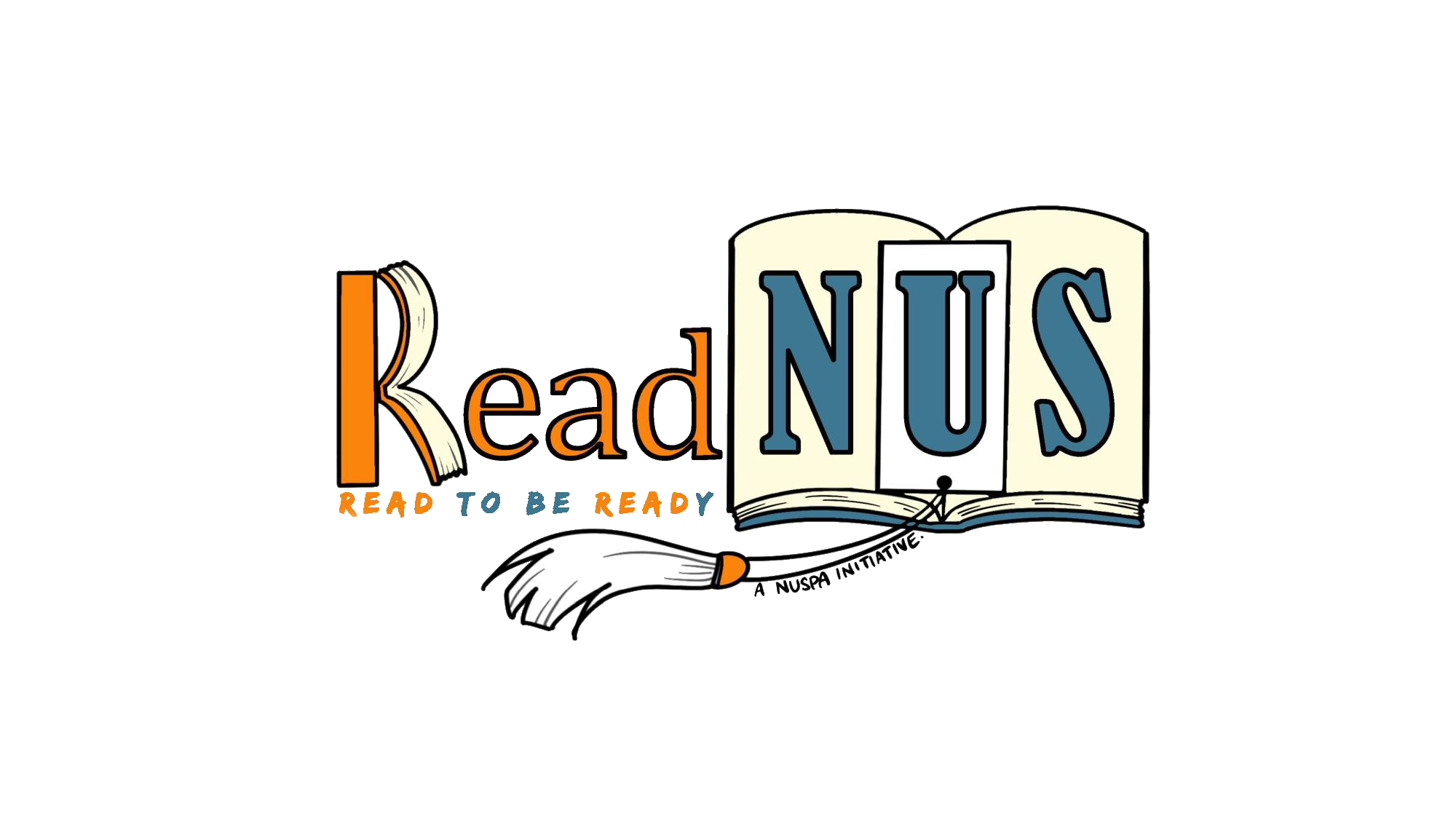Behind The Book – NUS Social Policy Forum Edition
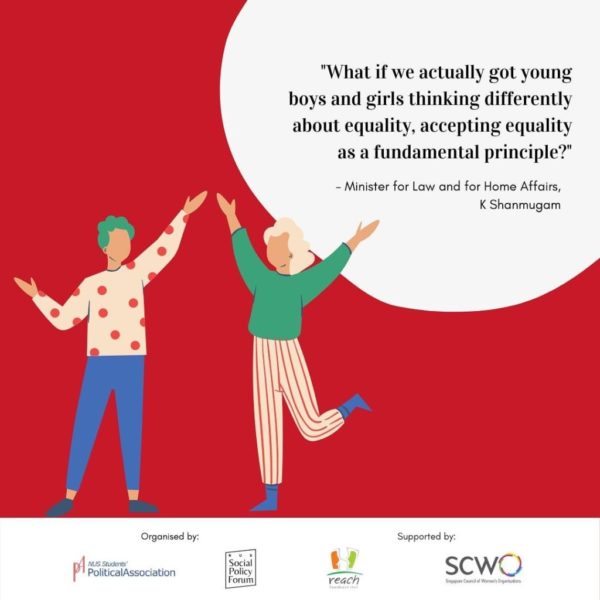
We’re continuing our Behind The Book Series with a special contribution from our friends over at NUS Political Association (NUSPA)!
This month, NUSPA will be organising their NUS Social Policy Forum – an annual event that aims to help youths gain deeper insights on issues of social inequalities through discussion with policy-makers and other experts.
The organising committee have chosen a particularly apt topic for 2021 – ‘Women’s Development: The Next Step’. This topic comes in view of the government’s recent efforts to promote women’s development and the impacts and changes that COVID-19 would have on women’s issues in Singapore. The forum will focus on solutions and strategies to move forward—the “Next Step”.
Of course, being the bibliophiles that we were, we couldn’t help but wonder if there were any books that could shed more light on gender equality. We decided to ask the organising committee of NUSPA’s Social Policy Forum, and their answers didn’t disappoint! Here are book recommendations on women’s issues by 3 members of their organising committee:
The 3 Paradoxes: Working Women in Singapore Recommended by Ritu Warathe
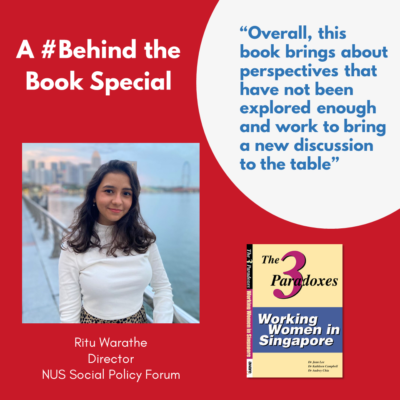
“My favourite book is “The Three Paradoxes: Working Women in Singapore”. I liked it because it grounded my experiences as a Singaporean woman within a more tangible reality. This book served to be introspective as I pondered on the effect of policies on a woman’s day-to-day life. The book highlighted contrasting policies implemented by the government that both challenged and grounded women to certain traditional gender stereotypes. Overall, this book brings about perspectives that have not been explored enough and work to bring a new discussion to the table.”
Ritu Warathe
Year 3 Political Science
Director, NUS Social Policy Forum
On intersectionality Recommended by See Ee Teng
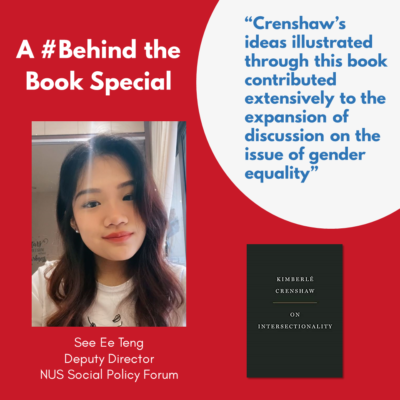
“On intersectionality by Kimberlé Crenshaw is one of my favourite books when it comes to discussing gender equality. “Intersectionality”, famously coined by Crenshaw, asks individuals to consider the idea of social identities like race, class and other factors when looking at women and the issue of gender equality. With the consideration of other facets encompassed within the greater context of society, Crenshaw’s ideas illustrated through this book contributed extensively to the expansion of discussion on the issue of gender equality. I absolutely adore this book, it’s feminist ideas and the message Crenshaw wishes to share with her readers which is extremely prevalent in this day and age.”
See Ee Teng
Year 2 Political Science and History
Deputy Director, NUS Social Policy Forum
The Bluest Eye Recommended by Sandra Soh
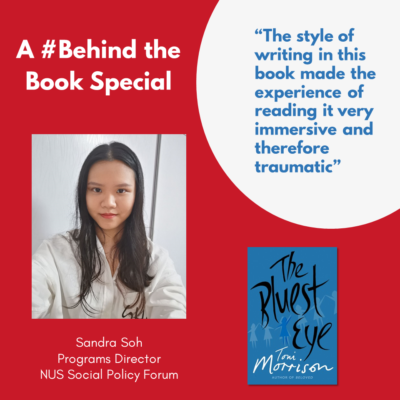
“The style of writing in this book made the experience of reading it very immersive and therefore traumatic. Though I did not personally relate to all of the experiences of hurt and abuse within this book, I was very impacted by the mental processes of internalisation of toxic beliefs and the
horrifying influence our social surroundings has on us, turning us into our worst enemies. There is a lot of intersectionality within this novel which also allows me to acknowledge the layers of complexity that exists within equality and gender equality. From race to socio-economic class, the
impact of sexism differs. The novel also does not shy away from sexism on men but also emphasises how many victims of this sexism often turn violent towards those weaker among the established social hierarchy. For men, it is women and for women it often becomes younger women. It is a serious tragedy and not uplifting but I find it an enlightening and riveting read.”
Sandra Soh
Year 4 Life Sciences
Programs Director, NUS Social Policy Forum
NUS Social Policy Forum 2021 is happening on 29th January, 7PM – 9PM. To sign up, head over to: http://bit.ly/nuspaspf
